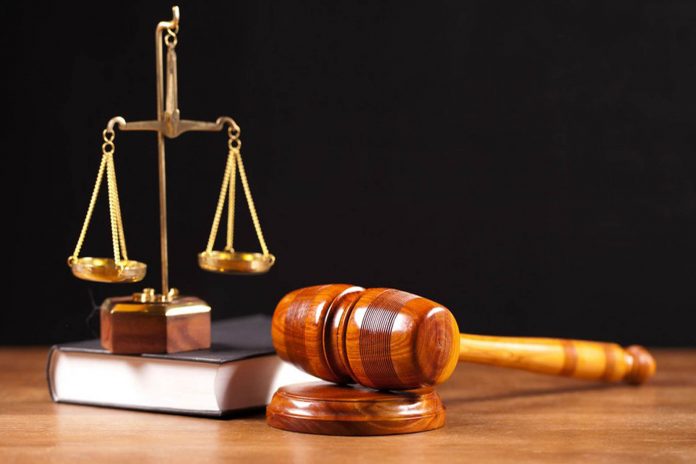This summary is written by Aarchie Chaturvedi, from National University of Study & Research in Law, Ranchi.
In this session, LawSikho hosted Ms. Harleen Hira (Rank 3 Punjab judiciary and Rank 4 Haryana judiciary) to discuss the strategies and tips to crack the state judicial service exam. The session was moderated by Ms. Shweta Devgan Content Consultant and Product Manager (Judiciary Course) at LawSikho.
Following is the list of questions that were posed to Ms. Hira during the webinar and the felicitous answers which were given by her.
- Can you share some tips with us, regarding what should be prioritized first while studying for the judicial services examination and what should be studied later?
-Subjects like CPC, IPC, CrPC are not only lengthy but also many questions are asked from them, be it in the prelims, the mains, or in the interview. As a consequence, they must always be on a student’s priority list.
Apart from prioritizing subjects, it is also important to understand that one’s preparation happens in stages. One has to study a subject multiple times before they appear for the final exam. It would be better hence to divide the lengthy subjects into parts and to study them along with the subjects which are not so vast. For instance, one can start with studying general defenses under IPC and then pursuant to it, continue with some easy topics like the Sales of Goods Act. This kind of a pattern prevents a candidate from feeling overburdened or stressed out.
- What is the ideal timeline to prepare and in specific what time should the important subjects be given?
-Overall preparation needs a year in general. Studying takes longer when you are doing everything for the first time. Set goals, she says, but don’t be very time-specific. Don’t rush through the concepts. The concepts must be crystal clear in your head.

- Many people feel that you will sail through the exam just by solving the past year papers. What are your views on that?
-Ms. Hira says that it is extremely important to solve past year papers thoroughly. Gradually you will realize that there are some concepts that are only talked about in the past year papers of Haryana Judiciary and no book mentions them. So, if you are preparing for the Haryana Judiciary, she specifically advises you to sincerely solve all the previous year papers. She also recommends studying from books like Basant Kumar Sharma, Paras Diwan (Hindu Law), Poonam Pradhan (customary law & succession) along with solving the previous year papers.
- How do you improve your answer writing specifically for the mains exam?
-In the Punjab & Haryana judiciary exam, there is a different teacher for checking each question. Therefore, the tactics used in college days, by beautifully writing the answers at the beginning of the paper to gain marks and just scrubbing it off in the end, won’t be of help here. You should give adequate time to each question, she says, so that you are able to think properly and articulate your answer well. She even advises students to link their answers with constitutional law as much as they can because relating an answer to the constitution shows conceptual clarity on the part of the candidate.
- Can you describe in brief to us what was your time table during your preparation period?
-She shares her experience wherein she says that she never studied without a time table. She studied in the library from 10 in the morning to 8 in the evening. In the midst of these hours, she took short breaks so that she didn’t feel monotonous. Towards the end of the day when she felt a bit exhausted, she started revising whatever she had done on that particular day. She emphasizes the importance of constantly revising. Her methodology of studying definitely shows us that libraries are very productive as far as making a continuous sitting is concerned.
- Since fewer resources are available for the preparation of Haryana Judiciary exam, is it advisable to read authoritative texts only or more or less normal notes would do?
-She says that after you are done with reading the basic text once, it’s upon you to decide which notes per se are you more comfortable with. After you identify them, stick to them and revise them thoroughly. By combining the knowledge gained from the textbook and the notes, compile one final answer that you are going to write in the exams.
- How much and what type of case laws should be read? What is the relevance of the latest case laws in Punjab and Haryana Judiciary?
-For Punjab and Haryana Judiciary, she advocates a book consisting of MCQs on case laws by Tarun Chuttani. Solving that book will help greatly during the exams.
- What was the roadmap that you charted for your answer writing?
-It is not possible to make voluminous notes for every topic. Filter your syllabus into very important topics, important topics & not so important topics. After identifying this, at least make notes for the topics that fall under the category of very important topics. This would help you to construct a mental map, to write an answer quickly if a question comes in the exam.
- What preparation should you focus on while you are in the first year of your law school?
-Take it easy. Explore yourself. The maximum you can do is whatever law subjects you are studying in the first few years of your law school study them thoroughly.
- Can you tell us something about reading newspapers and is general knowledge per se required for clearing Punjab and Haryana Judiciary as it is required for Delhi Judiciary?
-She believes that once you are prepared it is not that difficult to clear any state’s exam. You should however, target those states which have a similar pattern. She even advises upon the fact that one should broaden one’s horizon and instead of targeting one state’s judiciary only, they should try for other states’ judiciary exams also.
According to her you can read newspapers like the Indian Express, The Hindu, especially their editorial pages. Environment, media, and women empowerment are some of the sections on which more or less questions are framed every year, so one should keep one’s focus on them. In the end, she says that you must also remember to give an unbiased ending to every essay that you write.
- Rote learning v/s Conceptual clarity; what do you prefer?
-Ms. Hira any day prefers conceptual clarity over rote learning. Rote learning can make you reach your short term goals. For a long-term goal, or for becoming a good judge it is very essential to have good concepts. Also, you can’t befool a panel consisting of 5 judges that you have clarity of concepts when in reality you don’t possess it.
- How did you manage to study for LLM with your preparation for the exams?
-It was not her main goal. It was just a backup plan because she didn’t want a gap year in her education. So, if even she scored less marks in her LLM, she didn’t bother herself much with that.
- What is the relevance of doing masters when you are ultimately going to become a judge?
-At the time of your promotions & increments (after you become a judge), LLM has certain points. LLM brings about a difference in your pay scale also. Therefore, eventually, every judge has to pursue LLM.
- Would you like to recommend some books for languages?
-For grammar, she says, one can take a book of 10th standard of Punjab or Haryana board. For Hindi essays, Nibandh Maala by Arihant, and for essays in Punjabi the book by Duggal is recommendable. Lastly, she mentions that nothing can be a substitute for what you will learn by reading newspapers.
LawSikho has created a telegram group for exchanging legal knowledge, referrals and various opportunities. You can click on this link and join:
 Serato DJ Crack 2025Serato DJ PRO Crack
Serato DJ Crack 2025Serato DJ PRO Crack










 Allow notifications
Allow notifications


